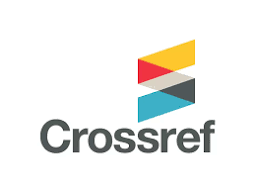Audit of Gastric Cancer Histopathology Reports – A Systematic Step Forward
Keywords:
Audit, Gastric carcinoma, Histopathology reports, Surgical pathology reportsAbstract
Background: Gastric cancer is the second most common cause of cancer-related mortality worldwide. Surgical resection remains the mainstay for treatment. Histopathology reports of these surgically resected specimens play an important part in deciding prognosis as well as future treatment options.
Objective: This audit was carried out principally to assess adherence of histopathology reporting of gastric cancer cases in our hospital to minimum datasets by Royal College of Pathologists. The essential aim was to promote this practice and improve the standard of reporting in our country as well as health centers across the region.
Materials and methods: This study was carried out from 1st January 2008 to 30th January 2016. Data for audit was collected from computer records using Oracle software. Only gastric epithelial malignancies were included. Criteria from the core and noncore dataset items were marked as either present or not present. After the presentation of the initial audit, deficiencies in reporting were highlighted and a reaudit was carried out.
Results: The mean percentage of completion of reports was 86.47 ±8.267.Tumor size, histological differentiation, lymph node status, proximal and distal resection margins were mentioned in all (100%) cases. Reporting of circumferential resection margin was most inconsistent and there were 32 (37.6%) cases in which pathologists failed to mention this core data item. Noncore data items were poorly represented. Reaudit showed marked improvement in reporting standards with circumferential and lymphovascular invasion missing in only 01 (5.6%) case.
Conclusion: In our opinion, standard typed performas are necessary for improving pathological reporting. Moreover, audits should be a regular part of histopathological reporting in our part of the world similar to that seen in West as this is the only way to evaluate ourselves and allows continuous improvement
Downloads
Published
Issue
Section
License
Copyright (c) 2019 Humaira Nasir; Naima Tariq, Uzair Latif

This work is licensed under a Creative Commons Attribution-NonCommercial 4.0 International License.
Readers may “Share-copy and redistribute the material in any medium or format” and “Adapt-remix, transform, and build upon the material”. The readers must give appropriate credit to the source of the material and indicate if changes were made to the material. Readers may not use the material for commercial purpose. The readers may not apply legal terms or technological measures that legally restrict others from doing anything the license permits.


